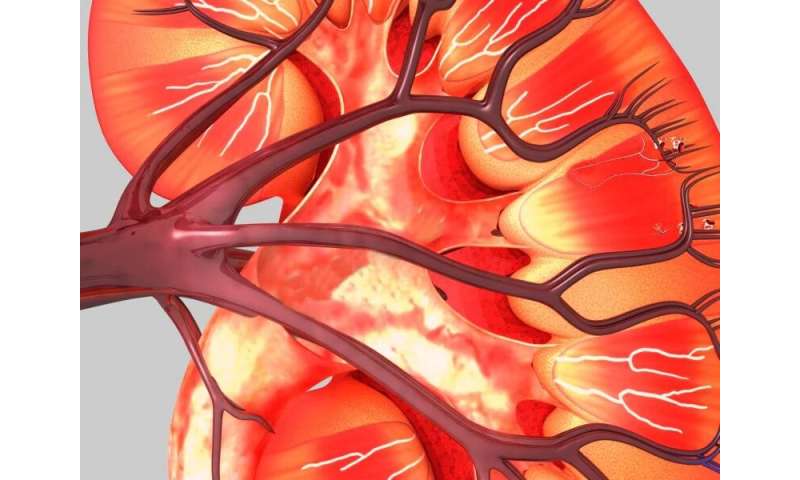
(HealthDay)—Transplanting hepatitis C virus (HCV)-infected kidneys into uninfected recipients and then treating patients with antiviral therapy leads to a higher quality of life and is less costly than waiting for transplantation with an uninfected kidney, according to a study recently published in the American Journal of Kidney Diseases.
Mark H. Eckman, M.D., from the University of Cincinnati Medical Center, and colleagues used a Markov state transition decision model to examine the effectiveness of (in quality-adjusted life years) and costs associated with transplantation with an HCV-unexposed kidney versus an HCV-infected kidney with HCV antiviral treatment. Participants included dialysis patients on kidney transplant waiting lists.
The researchers found that transplanting HCV-infected kidneys into uninfected recipients increased survival by 1.19 quality-adjusted life years and reduced lifetime costs by $37,918 compared with transplanting kidneys from HCV-unexposed donors. The investigators note that the benefits stem from the excess mortality risk for dialysis patients, the high efficacy of antiviral HCV treatments, and the substantially shorter wait times for HCV-infected kidneys. The average wait time for an HCV-infected kidney was 1.56 years, and this transplantation approach was cost-effective as long as the wait-time for an infected kidney did not exceed 3.1 years.
“This matters because patients on dialysis have a much higher risk of dying each year,” Eckman said in a statement. “Anything that can shorten the number of years the patient is on dialysis waiting for a transplant is an improvement. That’s the benefit of accepting an HCV-infected kidney.”
Source: Read Full Article
